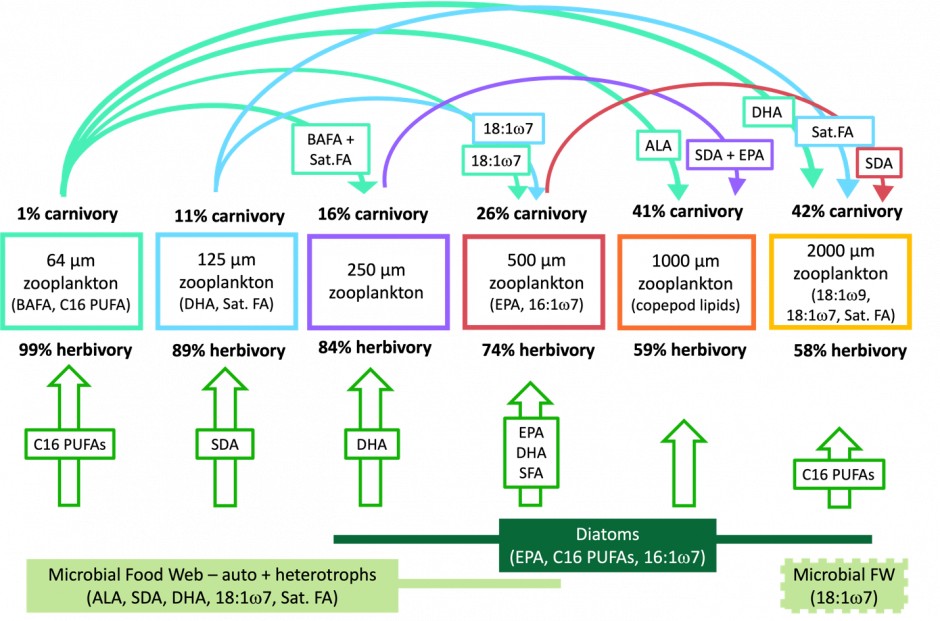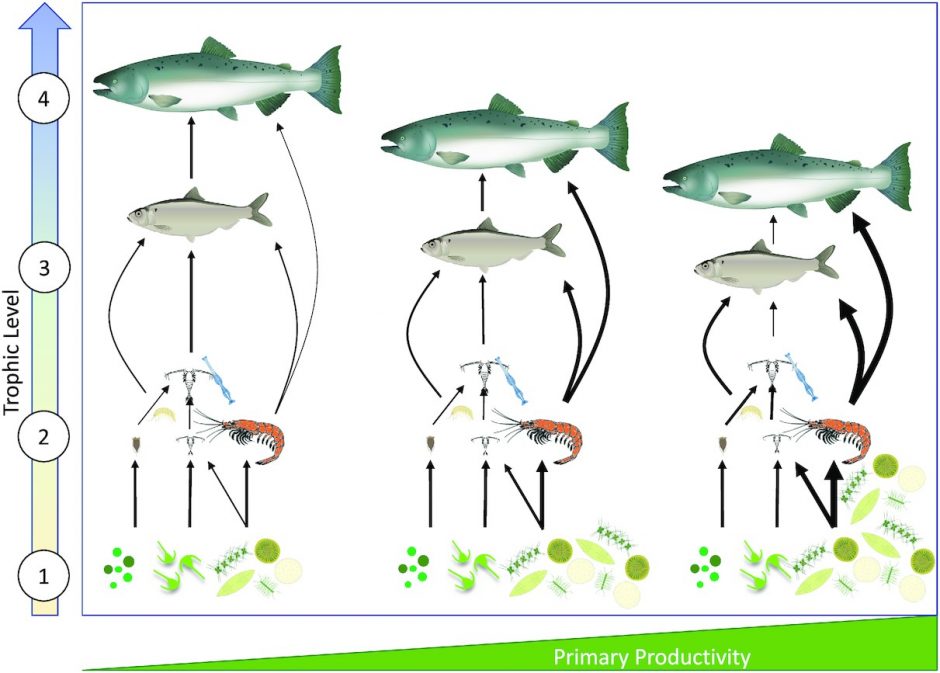Structure and function of plankton food webs – pathways from microbes to zooplankton

We aim to understand the structure and trophic pathways of planktonic food webs, and the implications for the productivity and nutritional quality of the food web base. The temperate British Columbia coastal ocean is used as a model system. Methodological approaches include microscopy, molecular ecology, stable isotopes, and fatty acids. [The figure above can be found in McLaskey et al., 2024]
Collaborators
Hakai Institute, Fisheries and Oceans Canada.
North Pacific Coastal and Open Ocean Food Web Ecology

We aim to parameterise marine food webs using biogeochemical tracers (stable isotopes and fatty acids) and diet analysis, identifying their structural properties (e.g., complexity, length, species niche overlap and trophic level), and implications for organisms nutritional health and food web production. [The figure above can be found in Lerner et al 2022]
The International Year of the Salmon has and continues to make an important contribution to this work, founded on research expeditions to the northeast Pacific in 2019 and 2020, and the central and northeast Pacific in 2022. Through this work we are building an understanding of the interannual variation and spatial structure of North Pacific pelagic food webs.
Collaborators
Fisheries and Oceans Canada, NOAA, North Pacific Anadromous Fish Commission.